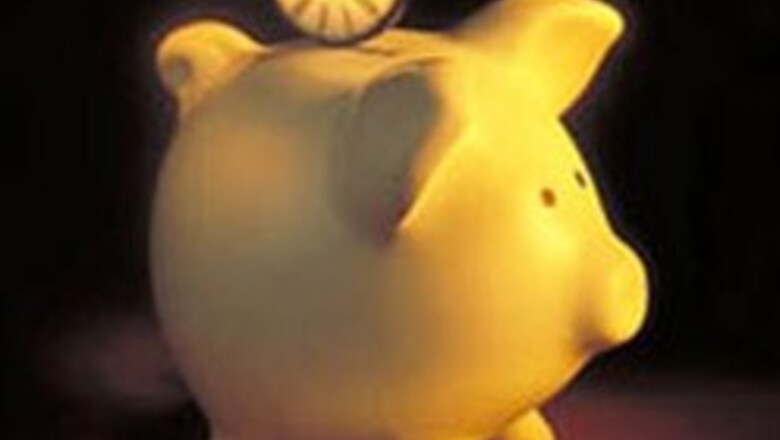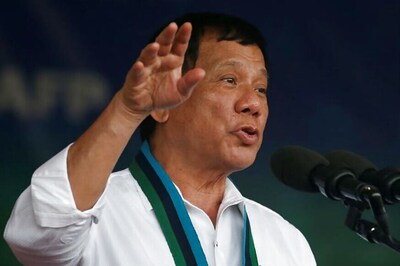
views
Beijing Generations of Chinese children have been taught to practice thrift by putting their pocket-change into piggy banks. However, the habit, which often continues into adulthood, has caused a severe shortage of coins and small-denomination notes in China.
Saving boxes have become a must-have in every Chinese household. In hundreds of millions of these home banks, the Chinese are hoarding a big percentage of the nation's small change.
As a result stores, restaurants and even banks are short of coins, according to a Chinese newspaper report.
People increasingly discover that their 100-yuan notes are useless when it comes to buying vegetables, taking buses or using public phones - small transactions require small change.
Small-change shortage is an annual phenomenon that worsens at year-end. That is because the central bank usually issues coins to banks at the start of each year.
By the end of the year, most have disappeared into the piggy banks of the nation.
The shortages have given rise to an underground trade of "professional exchangers" who supply coins and low-denomination notes, at a commission of about two percent.
But with the shortage worsening, especially in the booming southern province of Guangzhou, the unofficial price of 100 one-yuan coins can be as high as 125 yuan, according to the report in the Workers' Daily.
In the coastal province of Shandong, the central bank has issued coins worth 40 million yuan ($5.26 million) since 2006.
However, most of these have vanished from circulation.
Meanwhile, a mountain of small change is collected every day from bus passengers by public transport companies, which then send most of it to the banks, the newspaper said.
But supplying coins has become a side business for bus lines, which supply them to small businesses ranging from lottery vendors to restaurant operators.
However, there is another reason for the small-change not being recycled back into the system.
When a man in Shenyang carried two large bags containing some 37,000 coins worth more than 600 yuan ($79) to a local bank, he was told that the "currency counting fees" would amount to 600 yuan.
He returned home with the coins that he had collected over the past decade.
Since 2005, banks in large cities such as Beijing, Shanghai and Shenzhen have been charging "currency counting fees" under a 2003 regulation of the China Banking Regulatory Commission.
Businesses have in some cases declined to pay such fees, with some unusual results.
Employees of a bus company in Shenyang once got their monthly pay entirely in coins. And in the warehouse of another bus company in Shandong, many small-denomination notes were stored for so long, they began to rot.
A bank clerk in Shanghai defended currency-counting fees by saying that his bank had to assign more than 40 people each day to count coins worth more than 2.6 million yuan ($342,000).
Meanwhile, there are many opinions about how to solve the shortage.
Bankers say that buses and supermarkets should promote electronic transactions.
Legal experts said the "exchange" trade and "currency counting fees" charged by banks should be banned.
Other people say that supermarkets should avoid prices such as 9.9 yuan to make it easier for customers to pay without small-denomination currency.
But both eight and nine are considered auspicious numbers in China, and prices like 99 yuan are a strategy to make prices seem cheaper.




















Comments
0 comment